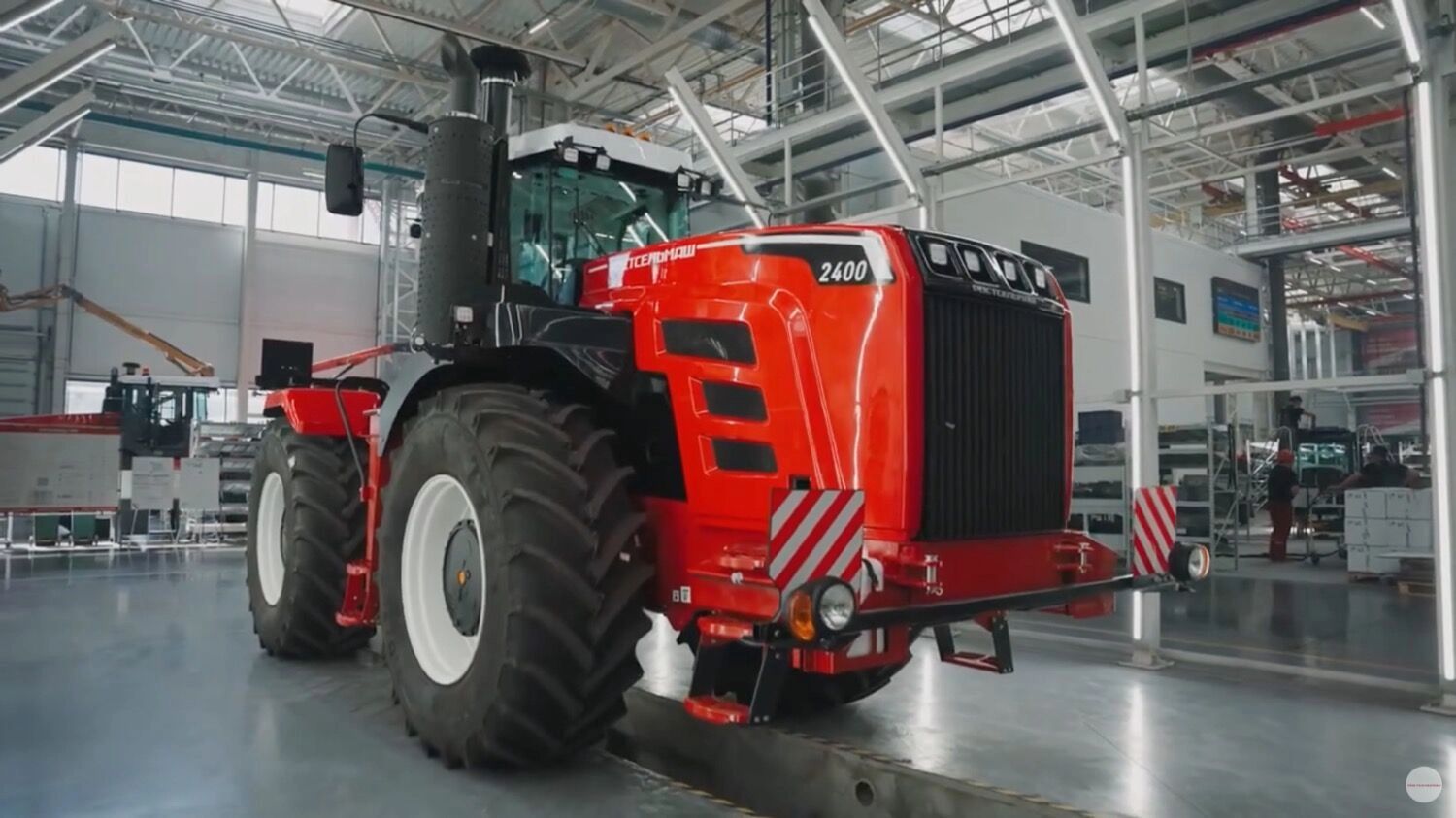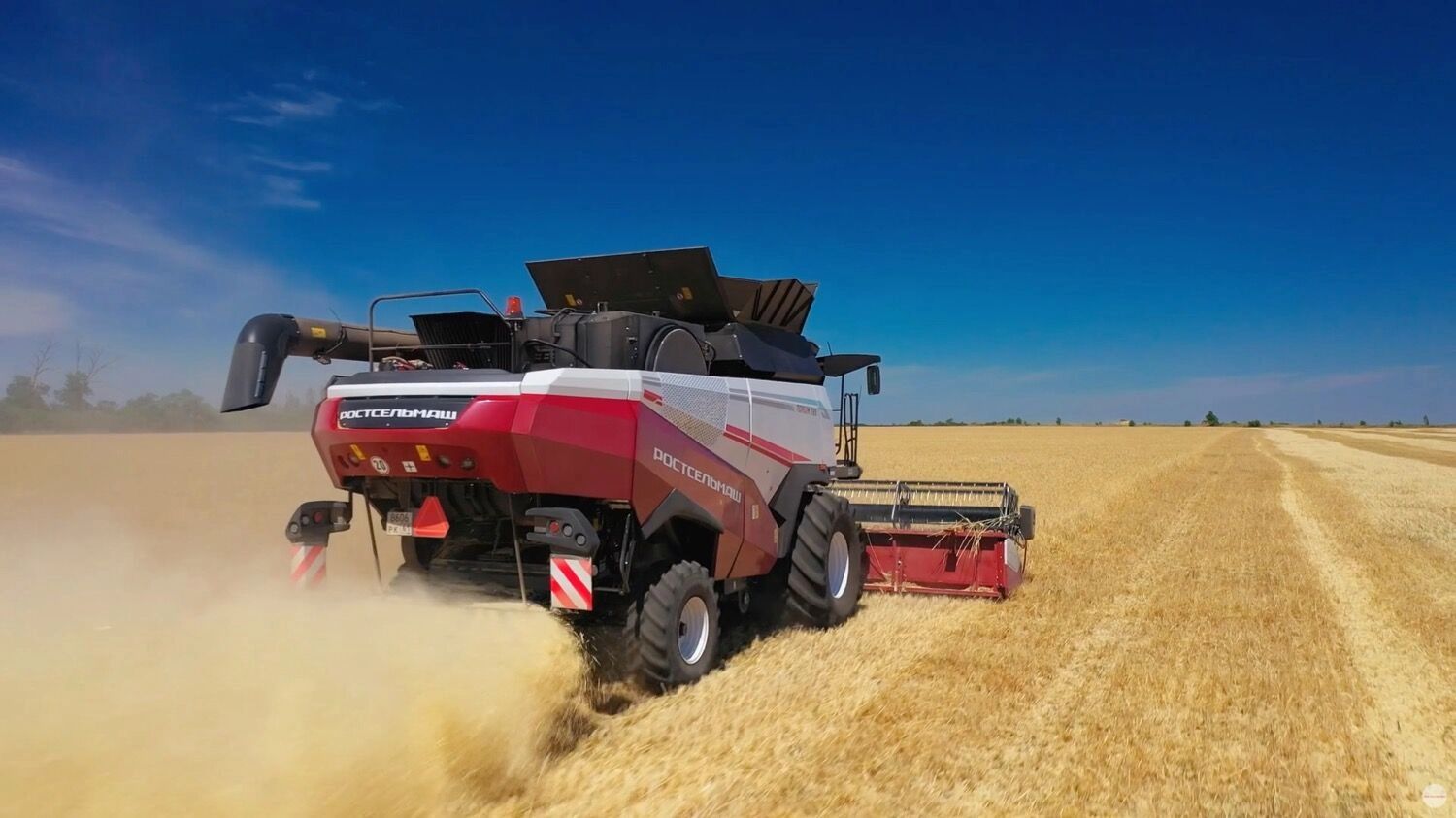Vacation with tears: why Rostselmash workers are not happy about the forced vacation

The famous Rostselmash enterprise is sending its entire staff on a month-long vacation due to a sharp decline in the market. The plant's administration announced that the "production pause" will last for a month, but skeptics are already predicting that the downtime will continue throughout the summer.
The company's official statement emphasizes that this measure is a necessity caused by the current economic situation in agriculture. It is emphasized that agricultural producers do not have the opportunity to purchase the equipment they need, which has led to a significant decrease in market demand.
In March of this year, Rostselmash switched to a four-day work schedule due to an almost threefold reduction in demand for manufactured products. In April, the enterprise restored the standard schedule, but reduced its staff by two thousand people.
2024 has been the worst year for sales in the last decade. In the first four months of 2025, the volume of grain harvesting equipment deliveries from all manufacturers fell by 76% compared to 2021. Deliveries of forage harvesters and tractors fell almost by half. In this regard, there was a need to reduce production volumes.
For more than 15 thousand employees of the enterprise, forced leave is paid at two-thirds of the salary. But an even greater threat is to lose their jobs in the near future if the situation with sales of agricultural machinery does not change. And this is doubly offensive for Rostselmash, which can compete with the best foreign corporations, trying to modernize production according to world standards.
Rostselmash equipment is not inferior to competitors. Photo: Rostselmash


In 2024, by Decree of the President of the Russian Federation, Rostselmash was awarded the Order of Honor for the fact that the plant put into operation three new production complexes: for the production of tractor equipment; for the manufacture of automated and mechanical gearboxes, axles and gearboxes designed for tractors, combines and machines used in road construction; as well as an enterprise for the assembly of trailers and mounted equipment for agriculture. The unprecedented scale of these projects lies in their almost simultaneous implementation.
Among the grain harvesters, the all-wheel drive models NOVA and VECTOR, as well as the TORUM 785, equipped with a half-track developed by the company, entered the market. In the fall, the company presented the first samples created on the basis of a new universal platform: the grain harvester H820 of the 8th class with a unique hybrid system of threshing and separation and the S530 of the 5th class with a traditional system of threshing.
In May, the company officially presented front and telescopic loaders - the first examples of equipment that marked the development of a completely new area for itself: the design and production of road construction equipment.
Notable achievements were noted in the area of acquiring new technical capabilities. In December, testing of the PowerShift automatic transmission began, designed for tractors with a capacity of 440 to 620 horsepower. Until now, such gearboxes have not been produced in Russia.
The concern's enterprises employ more than 15 thousand people. Photo: Rostselmash
Rostelmash co-owner Konstantin Babkin attributes the current problems with product sales not only to the exorbitant Central Bank rate, which has also pushed up payments for agricultural machinery leasing. Since 2013, the government has been subsidizing discounts on agricultural machinery, the peak of which came in 2017. Then, farmers received 15.7 billion rubles. But in 2023, government assistance fell to two billion.
In addition, the Russian tax system, as before, is oriented towards the export of raw materials, and not the production of complex products.
— The modern tax system grew out of the 90s and is designed to make it profitable to export raw materials from Russia, — says Konstantin Babkin. — Raw material exporters are the first to get their VAT refunded, they do not pay duties. This is very different from the systems in other countries. For example, in China, VAT is not refunded when exporting raw materials, it is refunded to exporters of finished products, and those who export oil, gas, timber and ore do not get their VAT refunded. Thus, raw material exports become 20% less profitable.
And here we export and sell raw materials abroad. This stimulates the export of unprocessed raw materials, and raw materials, the same metal and electricity, cost more here than on the world market.
In addition, enterprises that invest in development, purchase machines, build workshops, do not have to pay taxes on profits or any deductions from these costs. Such a benefit is in effect in China and America, it was in effect in Russia in the late 90s under the Primakov government. Thus, the governments of other countries and the Primakov government stimulate not consumption and not the export of money from enterprises, but investments in development.
In Russia, there is a perception of low income taxes, especially in connection with the well-known rate of 13%. However, if we consider the situation using the example of Rostselmash or any other enterprise, the actual tax burden on the payroll is 53%. This means that with the enterprise's costs of 100 rubles per employee, 53 rubles go to the budget, and the employee receives only 47 rubles.
In China, there are no taxes for workers with an income of less than 60 thousand rubles per month, and then they gradually increase. In Canada, the situation is similar for employees earning up to 120 thousand rubles per month (in rubles) - the tax is also zero, with a gradual increase thereafter. In Russia, the state takes significant amounts from enterprises for each employee.
Interestingly, self-employed couriers pay only 6% tax, which is significantly less than the 53% paid by businesses. Thus, the tax system collects much more money from those who work in manufacturing enterprises. The service sector is taxed less than those engaged in heavy physical or engineering labor, says Konstantin Babkin.
newizv.ru




